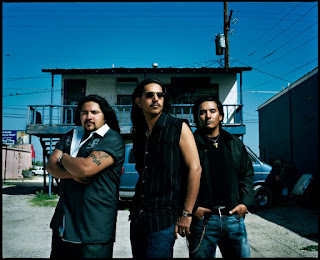I like going to coffee houses and other small venues to see the available talent and find out what type of instrument they are playing. During these excursions I see a wide variety of types of guitars being played. Often people instrument choices are driven by budget, peers, instructors, idols and visual appeal. Therefore, it is important to socialize and find out why the musician chose the instrument he/she is playing. One of the best ways to see what is being played it by attending a festival where the general public and professionals intermingle trading riffs and good times. Here in Northern California, I consult the
California Bluegrass Association website or publish paper for events in my region. If I have the opportunity to meet with some of the musicians, invariably I like to politely discuss instruments and find out the how, what, and why they made their purchase. Most musicians covet their instruments but often somewhere in the distance is looms an ideal tone tool that is just waiting for those last few dollars to seal the purchase. It's these details that musicians often talk about when they are practicing, joking around or listening to others.
Here in the bay area I find that you don't have to drive too far to get the feeling you are in the saw mill of the
old country backwoods. Many local entrepreneurs encourage and support local talent by giving them a place to hang their hat and play. I find that the time is well spent listening and conversing with the audience as well as the musicians. We as a collective society have used this media since the first to rocks clacked together and amused the other amoebas. By all means there is a time and place for your personal media and headphones but grab a cup of coffee and sit down and enjoy life (don't forget to tip). What types of instruments are people playing in the bay area? If you are talking about acoustic guitars then I'd say the mainstay of professional level instruments are
Martin Guitars or
Taylor Guitars.
The Martin and Taylor guitars are not always economically feasible for many people. I think the most notable attribute in selecting a guitar is its ease of play. Ideally the guitar should be free of defect but if you are looking for an area where you can compromise I would say cosmetic and aesthetic defects usually have no affect on the actuation of instrument. To be more precise; shallow and small dents, scratches, discolor, mis-matched wood are "preferable" defects. A poorly attached bridge might be mistaken as a cosmetic defect but in reality it compromises the ability to anchor strings. Nevertheless, it's important to be social and see what others are playing, aspire to play well with others which often leads us to want or need a decent guitar. It is equally important to remember that people are listening more critically than seeing. I digress, as humans we are stimulatied by response to our actions. Because sentient beings on this planet generally have the gift of vision, it is often with sight that we generate our feedback to access our performance. With music our visual feedback assessment of our performance
could over-ride our hearing feedback assessment and lead you to the road of ritualistic purchases of pretty instruments.
One need to look no farther than the guitars of
Stevie Ray Vaughan or
Glen Hasard to realize wonderful tones come from some not so pretty guitars!


Going out and socializing at local coffee houses and restaurants is an effective means of determining what instruments are being played by your local musicians. It offers insight to selection and hopefully some protection from self delusion of guitar acquisition syndrome (G.A.S.). In 1955,
Victor Lebow wrote a paper where he outlines the meat of consumer consumption which was titled - Price Compitition in 1955. In his writing
Lebow outlined that
fashion is the final component of the consumption machine. Lebow implies that our individuality is often expressed by the clothes we wear, the car we drive, the house we own and that compulsion is a unnecessary self delusional competition which doesn't result in the greater good of our individual musical goals. Therefore, it is important to listen first to what appeals to your musical tendencies so that you can find an instrument that will project the joy you feel while performing with your friends or by yourself. Visiting the local coffee houses and music events will give you great insight to what instruments, what musical genres, what food is popular and what fun can be achieved by being a musician. Playing a musical instrument give people the ability to socialize on many levels while gaining priceless human experience.













